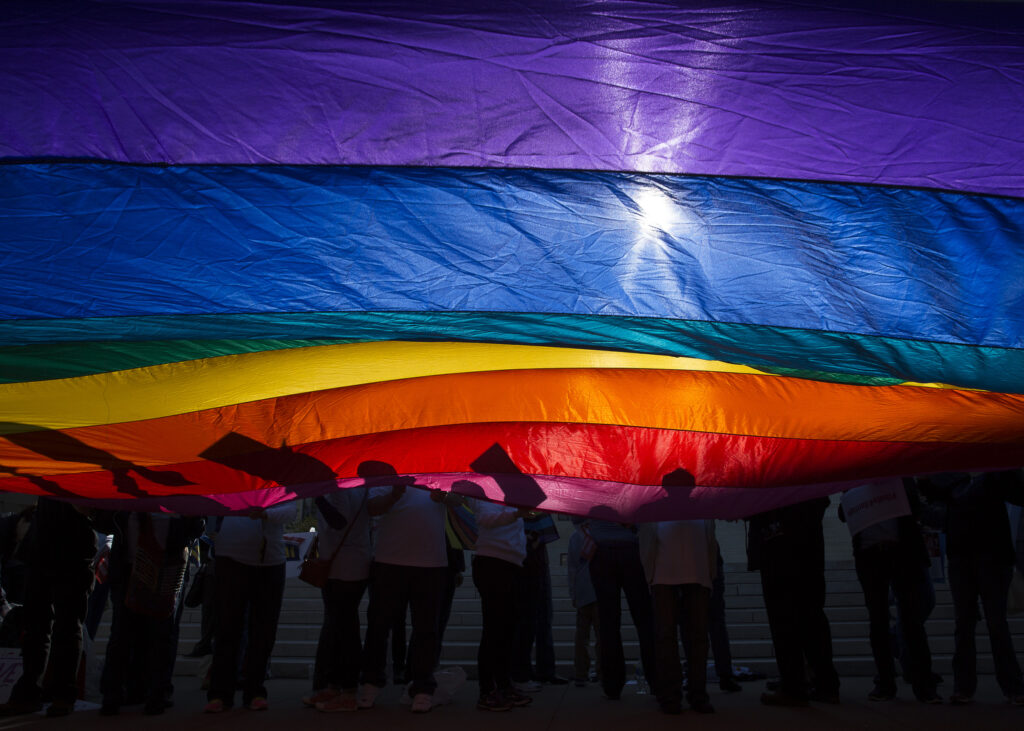WASHINGTON — With the 6-3 Supreme Court decision June 15 banning job discrimination against individuals in the workplace identifying as LGBTQ, the Catholic Church in the United States has a new moment of reckoning.
But it may be too early to tell what the full impact of the ruling will be.
In response to the court ruling, which found that discrimination on the basis of sex also includes gender identity, Los Angeles Archbishop Jose H. Gomez, president of the U.S. Conference of Catholic Bishops, said, “Every human person is made in the image and likeness of God and, without exception, must be treated with dignity, compassion and respect. Protecting our neighbors from unjust discrimination does not require redefining human nature.”
The Vatican Congregation for the Doctrine of the Faith in its 1992 document, “Some Considerations Concerning the Catholic Response to Legislative Proposals on the Non- Discrimination of Homosexual Persons,” said that “it is not unjust discrimination to take sexual orientation into account” in the areas of “adoption or foster care, in employment of teachers or coaches, and in military recruitment.”
Adoption and teacher employment are precisely the two issues the Supreme Court has yet to decide in its current term, which is expected to conclude in early summer.
When taken together with the sexual-orientation discrimination case, the justices’ rulings could force the Church, as an employer, into a new model of doing business, but it may be too early to tell.
“Parties relying on the Supreme Court need to be careful, and that there’s always risks in going to the court,” said Alexander Dushku, a member of the First Amendment and religious organizations, litigation and appellate sections for the Salt Lake City law firm of Kirton McConkie.
“The Supreme Court sought to assure religious employers that there are plenty of tools the court has to protect their legitimate interests but did not actually decide those questions because they were not at issue before the court,” Dushku said. “I personally think the court is going to be at least moderately generous to serious religious organizations.”
A guidance memo distributed June 18 by the U.S. Conference of Catholic Bishops’ Office of General Counsel to state Catholic conference directors and diocesan attorneys appears to agree with Dushku’s assessment. “The court,” it said, “leaves religious liberty conflicts to another day.”
The impact on Catholic institutional practices as employers “is yet to be seen,” said Michael Moreland, a professor of law and religion at Villanova University in Philadelphia and director of the college’s Eleanor H. McCullen Center for Law, Religion and Public Policy.
Moreland said it is his belief that the “ministerial exception” for employees at Catholic institutions is well-established. Many Catholic elementary and high schools and parishes have a clause in employment contracts declaring that the employee is a minister. However, he added, that is far less likely to happen “in larger institutional settings — Catholic universities, hospitals, social service agencies — where it would be difficult to say that everybody counts as a quote-unquote minister.”
Moreland also cautioned against thinking the Supreme Court decision will affect only secular employers.
“The funeral home (defendant in the LGBTQ case) actually raised a religious freedom defense under the Religious Freedom Restoration Act, but it didn’t pursue that on appeal in the Supreme Court because it was rejected by the circuit court below,” he said.

